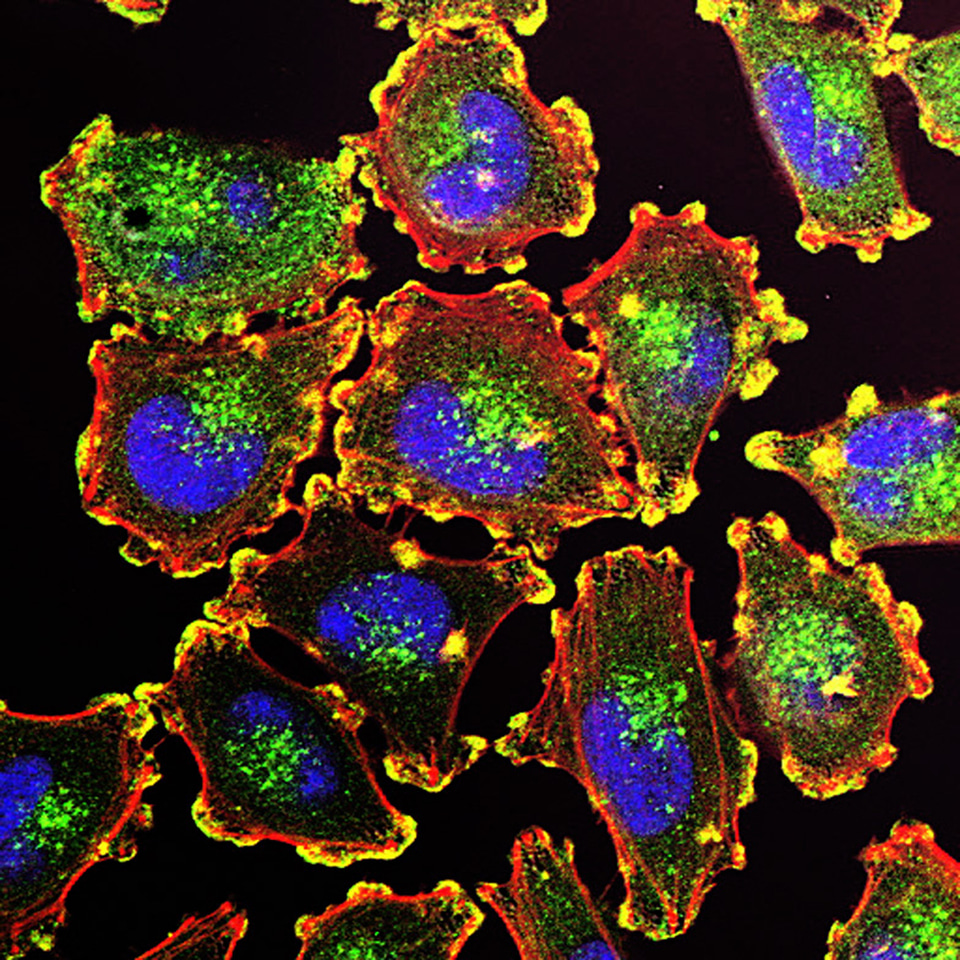Simulated microgravity has anticancer effects
Published in Physics

By preventing communication between cancer cells and extracellular molecules, simulated microgravity inhibits melanoma malignant cell activity. Building on previous reports, Jim Xiang, of the University of Saskatchewan, Canada, and his team conducted in vitro and in vivo assays of melanoma proliferation and metastasis, using a rotational device called a clinostat to negate the effects of gravity. The team found a distinct inhibition of melanoma cells to proliferate and invade their surroundings in vitro, and a reduced in vivo ability to form lung tumors in mice.
Further investigation revealed that simulated microgravity inhibited the formation of protein structures that connect cells to the extracellular matrix, a network of molecules that facilitate structural support and signaling. The loss of these interfaces consequently impacted the multiple intracellular pathways responsible for cell structure, metabolism, motility and division.
This research helps to paint a fuller picture of the impact on human physiology enacted by microgravity.
***
Poster image: Melanoma cells stained to show internal and cell surface structures. Image courtesy of Julio C. Valencia and the NIH's NCI Center for Cancer Research.




Please sign in or register for FREE
If you are a registered user on Research Communities by Springer Nature, please sign in